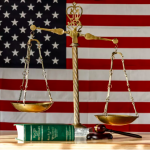How the Supreme Court Made it Easier for Corporations to Fight Class Action Lawsuits
https://portside.org/2017-08-21/how-supreme-court-made-it-easier-corporations-fight-class-action-lawsuits

Portside Date:
Author: Rick Paulas
Date of source:
Pacific Standard Magazine

From the 1970s to the early '80s, the military dictatorship controlling Argentina tried to maintain its grip on power through the elimination of left-wing political dissidents and guerrilla fighters. The state of chaos came to be known as "the Dirty War." While hard numbers are impossible to confirm, it's believed that nearly 30,000 people "disappeared" during the war.
One particularly grisly event took place in the Mercedes-Benz plant in the city of González Catán, where 22 labor leaders were captured, tortured, and murdered. In 2004, after decades of investigations, the family members of those killed put together a class action lawsuit against Daimler AG, the German manufacturer that owns Mercedes-Benz, for the corporation's alleged involvement in the murders. It was filed in the United States District Court for the Northern District of California.
What does a case involving a German car manufacturer collaborating with the Argentinian government in the 1970s have to do with Northern California?
It's actually not that strange for a case involving foreign governments and corporations to be heard in the U.S. Since 1980, the Alien Tort Statute has been interpreted in a broad enough way that it allows cases involving egregious human rights violations to be heard in the U.S., as long as the corporations have ties here. (Most, at the very least, have an American office, which tends to satisfy the requirement.) But why Northern California specifically?
In a 2012 survey by the U.S. Chamber of Commerce, lawyers representing corporations voted it "the least fair and reasonable" in its treatment of class action lawsuits. Reasons included how the state assessed damages and what evidence was admissible in court. It makes sense to assume, then, that lawyers on the opposing side feel the opposite way; if a class action suit against a corporation could be heard in California, plaintiffs' attorneys want to make sure it is.
This was the core question in the 2014 Supreme Court case Daimler AG v. Bauman.
It was the end of a long road that began with the aforementioned 2004 suit (in which a district judge said the trial couldn't be heard in California due to jurisdictional concerns), continued with a Ninth Circuit appeal (that said the case could be heard in California). But after the Supreme Court compared how Daimler communicates with its satellite offices in California to how it communicates with its other offices around the globe, the court decided, in an 9–0 decision, that the corporation was not "at home" in California. The case would not be heard in the state.
Subsequent rulings based on that precedent have continued the trend of limiting where class actions can be heard, most notably in Bristol-Myers Squibb v. Superior Court, in which the Supreme Court decided (8–1) that a class action involving several hundred individuals from 33 states (including 86 California residents) couldn't be heard in California. As the lone dissenter, Justice Sonia Sotomayer, noted:
I fear the consequences of the majority's decision today will be substantial. Even absent a rigid requirement that a defendant's in-state conduct must actually cause a plaintiff claim, the upshot of today's opinion is that plaintiffs cannot join their claims together and sue a defendant in a State in which only some of them have been injured. That rule is likely to have consequences far beyond this case.
These cases—along with other rulings, like Walden v. Fiore, and Atlantic Marine Construction Co. v. U.S. District Court—have effectively ended class action plaintiffs' ability to consider a range of venues where their cases can be heard, known somewhat derisively as "forum shopping." Lawsuits against foreign companies for atrocities that took place on foreign soil will no longer be allowed, ending the U.S.'s role as "World Human Rights Court."
Perhaps more importantly, there will likely be a cooling effect on class actions filed by Americans against American corporations. Not only will the pool of plaintiffs become fragmented by more strictly enforced state lines, but corporations will get to have cases brought against them heard in the states where they are based.
"Class actions will be pressured into smaller actions," says Scott Dodson, the associate dean at the University of California–Hastings College of the Law. "This is a huge advantage to corporate defendants, because they either command home-court advantage or force plaintiffs to disaggregate their class actions."
The "home-court advantage" Dodson mentions is easy to grasp. There's a benefit to a corporation having a case heard in its home state; after all, its attorneys likely know the state's laws and courts better than the opposing side. But the Supreme Court rulings are also likely to limit the scope of class action suits to merely one state, as opposed to nation-wide actions.
"For plaintiffs who either don't want to, or can't, file in the defendant's home state, the safest would be state-specific actions," Dodson says. "That's particularly damaging to class actions in which the defendant's conduct affects plaintiffs across the nation in a uniform and consistent way."
This will be more costly to plaintiffs (because they won't be able to pool resources with others), more costly to the court system (because it will have more cases to hear), and less costly to corporations (the cases brought against them will be smaller, and, as such, demand smaller payouts). The end result is that corporate actions are less likely to be held in check by the civil court system.
"[Corporate defendants] are likely to face fewer claimants and less liability," says Dodson, "while consumers—especially those with low damages—will have lost an important and powerful tool for vindication."
